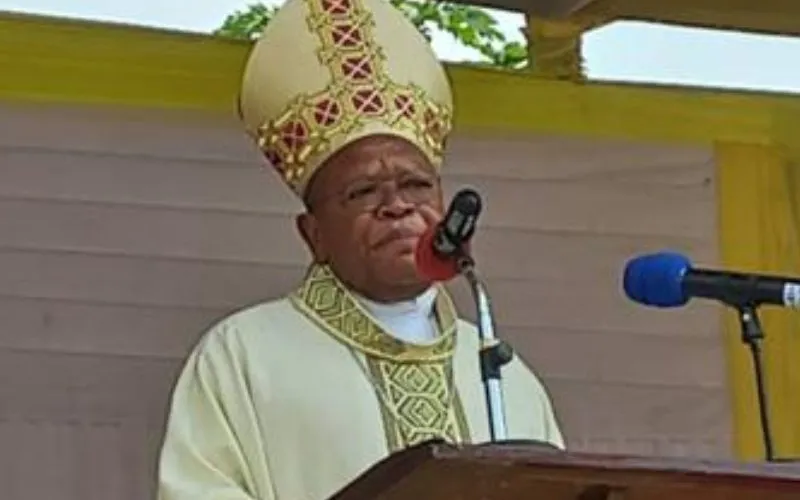Goma, 31 January, 2024 / 8:40 pm (ACI Africa).
The violent conflicts in the Great Lakes region go beyond politics, to include economic challenges, but even more concerning, “insensitive” hearts that are “indifferent” to human suffering, the Catholic Archbishop of Kinshasa in the Democratic Republic of Congo has said.
In his January 28 homily during the closing Mass of the Plenary Assembly of members of the Association of Episcopal Conferences of Central Africa (ACEAC), Fridolin Cardinal Ambongo called on authorities in DRC, Burundi and Rwanda, the three countries of the Great Lakes region that constitute ACEAC, to “show a little humanity to put an end to this crisis, which has gone on for far too long.”
“Our problem in the sub-region is not just a political one; it's also an economic one,” Cardinal Ambongo said during the Eucharistic celebration at Our Lady of Mount Carmel Parish of DRC’s Goma Diocese.
“It is an economic one, because it involves economic interests. But our problems in the sub-region, our conflicts, are rooted in our hearts,” he further said, and explained, “Our hearts have become insensitive to the misery of our neighbors.”
The Congolese member of the Order of Friars Minor Capuchin (OFM Cap), who presided over the Eucharistic celebration posed, “How can we explain that we're still shooting at each other, that we're still dropping bombs in the surrounding villages, when there are already 6 million displaced people who don't know which way to turn?”








